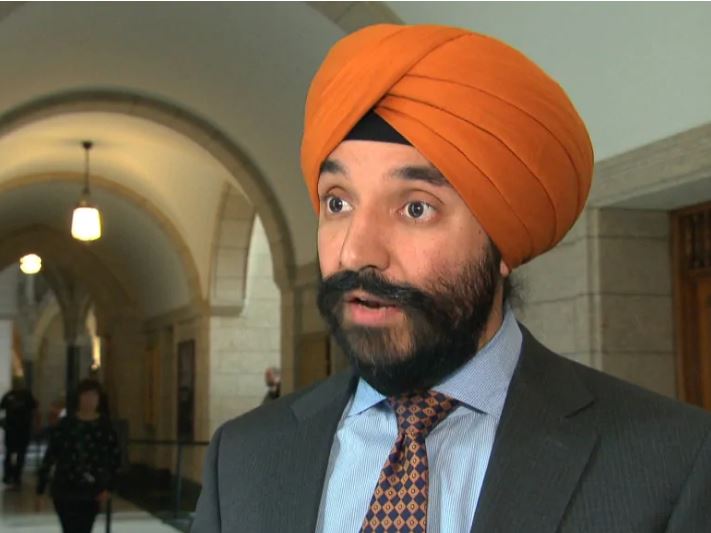
The Canadian Radio-television and Telecommunications Commission is holding hearings this week in Gatineau, Quebec, at the insistence of the federal government.
The growing outcry over aggressive sales people and misleading practices, had the government take the unusual step of ordering the CRTC, the telecommunication watchdog, to investigate and submit a report.
Laura Tribe is executive director of Open Media. She says it was unusual for the government to take this step.
A public inquiry into telecom sales practices did lead the CRTC to commission public opinion research, and the results were instructive: 83 per cent of respondents support a mandatory code of conduct for the telecom industry. And 77 per cent want governments at all levels to act to protect consumers from unethical sales practices.
Over these five days, the CRTC will hear from 31 people; some customers sharing their bad experiences, others representing advocacy groups, and on Thursday and Friday, representatives of the three largest telecom service providers, Bell, Rogers and Telus, will have their say.
Canada is dominated by these companies. In the early days of cell phone and internet use, the companies pleaded for light regulation to get the industry up and running.

CRTC hearings were prompted by Minister of Innovation, Science and Economic Development Navdeep Bains who said his government has heard from a high number of Canadians who feel misled by their telecom service providers. (Guillaume Lafreniere/CBC)
Over the years, however, the companies continued to charge some of the highest fees in the world, and left consumers with no other choice.
Now, with the market pretty well saturated, the sales practices are getting more competitive and Canadian complaints can rouse a lively conversation around many a dinner table.
“It was brutal”
Today the commission heard from several customers, many of whom first told their stories to the CBC, the national broadcaster, or the advocacy group, Open Media.
The CBC had been hearing stories of seniors being sold packages with internet services they were not even equipped to use, by unscrupulous sales people eager to meet company-imposed targets.
There have been several stories of employees speaking out, usually on condition of anonymity, as they were unable to cope with the demands put on them.
“It was brutal,” Jason Harley told the CBC’s Go Public television program.
He worked as a Rogers customer care representative in Kitchener, Ontario for two years until he quit in the spring of 2017.
He said employees would lose commission if they allowed Rogers customers to reduce their plans.
“I would do everything I could not to cancel a customer’s services, even though that’s what they wanted,” Harley said.
He said the system led to “a culture of dishonesty,” where some service reps employed several tactics to avoid having to reduce a customer’s services.
Some of the tricks included what Harley described as “the hot potato game”, where an agent would transfer the call to another agent, and then possibly a third, in an effort to avoid taking the financial consequence.
“Do I want to help the person, or do I want a paycheque?”
Some agents would even tell the client they had to go into a retail outlet, where a line-up might discourage them.
An employee of a Fido company, that’s a Rogers subsidiary, shared her dilemna with Go Public, but asked to remain nameless as she fears losing her job.
“If I try to help them [a customer], my statistics will go down and I’ll be shown the door,” she says. “So what do I want more? Do I want to help the person, or do I want a paycheque? It stresses you out.”
For Shawn Ahmed, the realization that the “deal” he responded to was quickly increased led him to take action and complain.
Ahmed responded to an ad for high speed internet with Rogers for $74.99 (Cdn) a month. He signed up in January 2018.
“I trusted what I was told over the phone,” he told Go Public’s Erica Johnson. Three months later his Rogers bill increased. “I feel cheated by them,” he said.
He was eventually reimbursed, but the practice continues, as there are no consequences for this unethical behaviour.
Laura Tribe says she is hoping to see amendments to Canada’s Wireless code, to implement financial penalties for these misleading practices.
Ultimately, however, she’d like to see the government take action “to facilitate more competition in the market place, to make sure that we have more providers that challenge these status quo practices that are widely accepted across the board.”
” The real problem comes from the government policy direction that says that mobile competition needs to come from what’s called facilities-based competition”.
She explains that this would require building another cell phone network.
“What we’ve seen work in so many other countries is what’s called MVNO’s, mobile virtual network operators, and they lease unused capacity on the existing towers so we could let companies in Canada, there’s a number of internet providers that would love to get into the cell phone market, it works very similarly to the way that it does for home internet, to actually lease unused space, instead of building a third, a fourth, a fifth cell phone network across the country, let additional companies pay to use the towers that are up now and provide different types of plans, different types of services, that the incumbents right now might not be offering.”
It may be a timely intervention, as the unofficial federal election campaign is underway. It is 365 days until the next vote, and Justin Trudeau’s Liberal party knows consumers are watching.
(With files from CBC)


